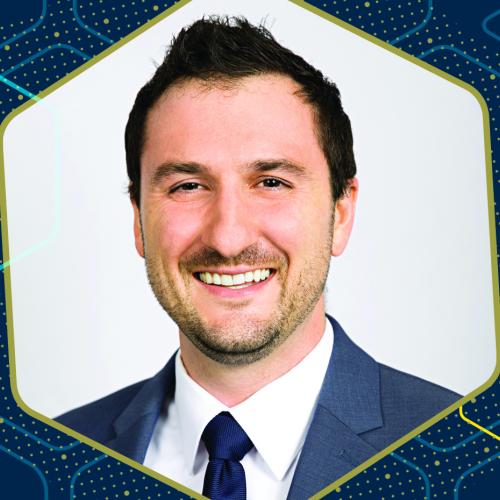Shifting Our Approach to Better Meet the Needs of Industry
Active listening and open communication that results in customized, tailored professional education is the key to success in today’s challenging business environment.

Today's highly competitive job market and changing employee expectations coupled with rapid technological change can leave business and industry leaders struggling to maintain their workforce. One-quarter of all workers are concerned that AI will make them obsolete. Recent studies also show that companies that provide opportunities for on-the-job skill building have a nearly 7% higher retention rate.
Companies are increasingly recognizing that professional education programs can positively impact recruitment and retention while improving internal morale and see investing in meaningful professional development opportunities as a strategic business decision. The opportunity for Higher Education to serve as a guide and partner to industry as they navigate change has never been greater as both are intrinsically motivated to create environments that support a highly trained and adaptable society. However, companies need scalable, adaptable, and economically sound solutions that keep their workforce continuously retooling and upskilling.
Both Higher Education and industry have long histories of sparking innovation and adding value to society, but our distinctions can be challenging to reconcile in real time, especially under pressure. We have meaningful differences in our operating environments, budgetary practices, and even our problem-solving approach. These can hamper our ability to connect forces in service to the workforce, but a few key opportunities can help bridge the expectation gap of the private sector with the realities of professional and continuing education programs.
Active Listening & Honest Communication
One essential tool for any professional is to learn to be a good listener, but this is especially so in academia. "The two groups approach things from very distinct mindsets and may even use different terminology," says Theresa Atkins, director of industry strategic partnerships at Georgia Tech Professional Education (GTPE).
"For example, companies are often thinking in terms of jobs and skills, but colleges may be listening in terms of content and gained knowledge."
Taking the time to listen without formulating solutions and playing back what was discussed can help avoid misunderstandings, lost time, and failed outcomes. Honesty and flexibility are essential for such partnerships to work, so awareness of the perspective of both sides is essential to ensure everyone is on the same page.
While Higher Education holds a tremendous amount of built knowledge, it is important to remember that companies are the experts in their organization's needs. Professional educators need to be bilingual in academic and industry terms, policies, and applications to appropriately translate them to educational outcomes.
Focus on Results
Academia often approaches challenges from a research-based mindset and is great at focusing on academic objectives and ongoing research. There is an intrinsic desire to view the delivery of training to a diverse range of businesses as a fascinating opportunity to discover, learn, and fine-tune processes.
However, time is of the essence when a company identifies a training need. They need employees to get up to speed quickly to make a positive difference to the bottom line. "A university needs to take their applied research knowledge and provide a clear rationale on how professional education can deliver the results they are looking for," says Mike Demaline, director of industry strategic partnerships at GTPE. Managing expectations and then ideally over-delivering to provide results translates into a tangible benefit to the industry partner.
"Start with clear timelines, objectives, and intended outcomes and plan to move into deeper, clarifying discussion."
Working to actively understand and relate to their needs while identifying and acknowledging issues - like when an objective cannot realistically be met - is an important factor as well.
Customization
Just like individuals, every company is unique. Expecting industry partners to fit into pre-prepared academic programs will not meet the organization's or business's specific needs. Instead, it requires flexibility and adaptation to develop tailored solutions that maximize the return on their educational investment. "For example, recently we carefully adapted a standard course on Change Management to support upcoming operational changes for a corporate customer," says Atkins. "We have also broadened our global reach with Supply Chain courses in Central America and the Caribbean, tailored to the specific local supply chain challenges and delivered in Spanish." Often there may be standard requirements or a standard structure, but even adapting case studies to the industry or the specific customer can add value and ensure the content better meets their needs.
"It is also vital to constantly update our knowledge beyond the theoretical with a focus on skills," says Demaline. "The world is experiencing a historically unprecedented rate of change, and keeping up with developments is key." Embracing the “new” as tools and opportunities, applying that research to the real world, and delivering a “win-win” for industry partnerships should always be the aim.
Going Forward
The industry is opportunity-rich for professional educators to interact with and positively impact what is a fast-changing business environment. Learning the language, staying relevant, and actively listening to understand needs and deliver custom solutions are the way forward for academic organizations to serve as genuine partners and support the workforce and industry needs of the future.
The Industry Strategic Partnership team works directly with companies and organizations to develop and deliver programs that help employees keep pace with ever-changing market forces and business demands. Interested in learning how we can help you? Connect with us here.

